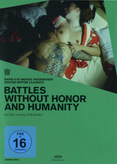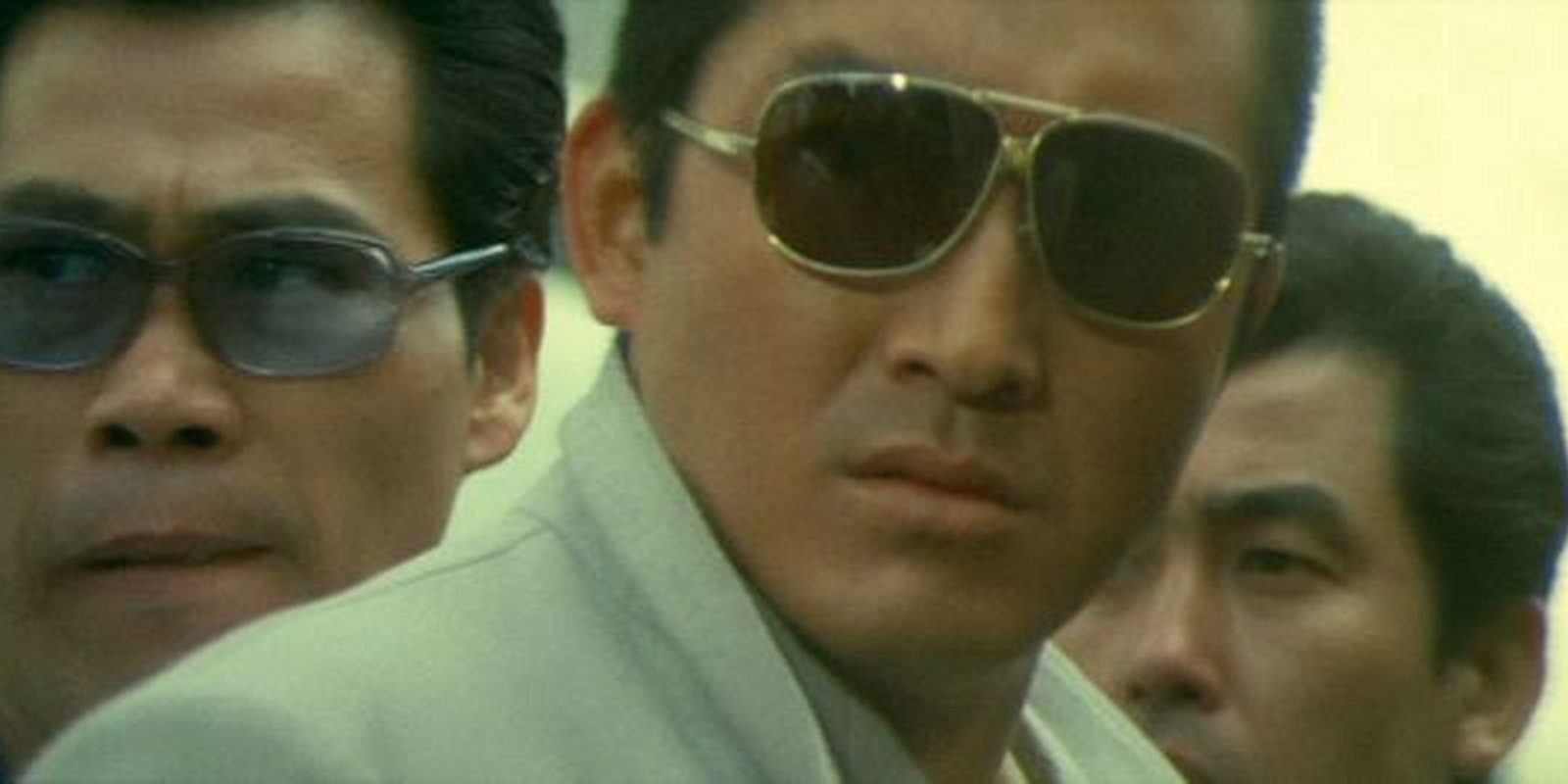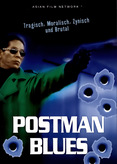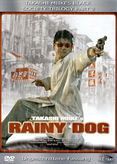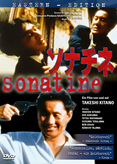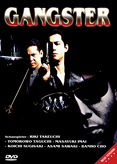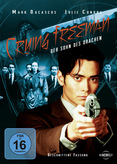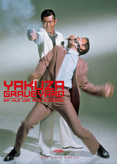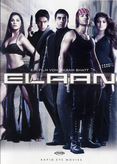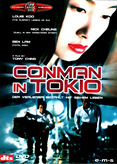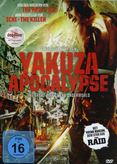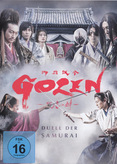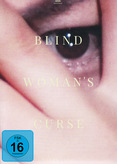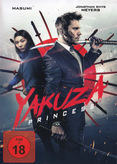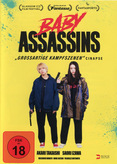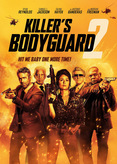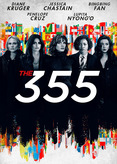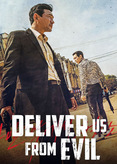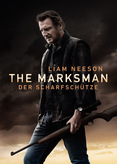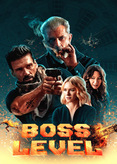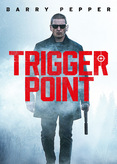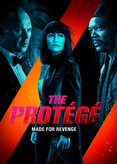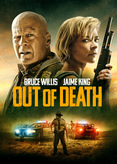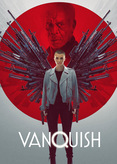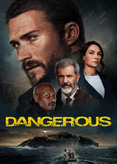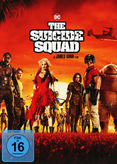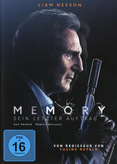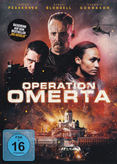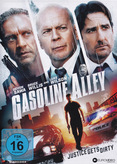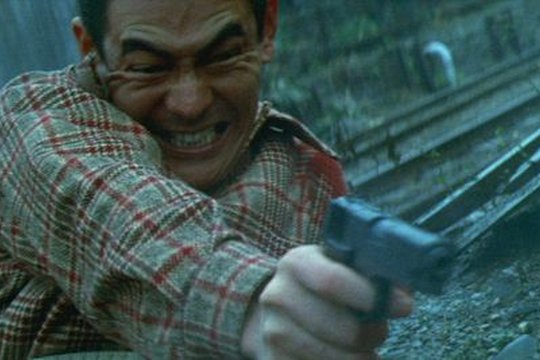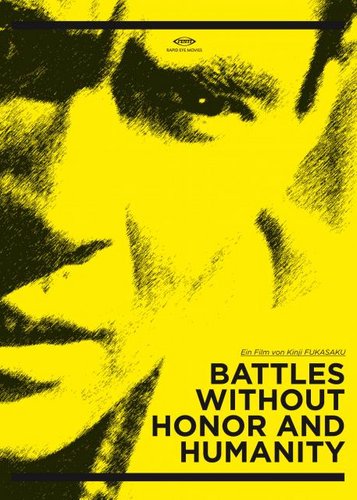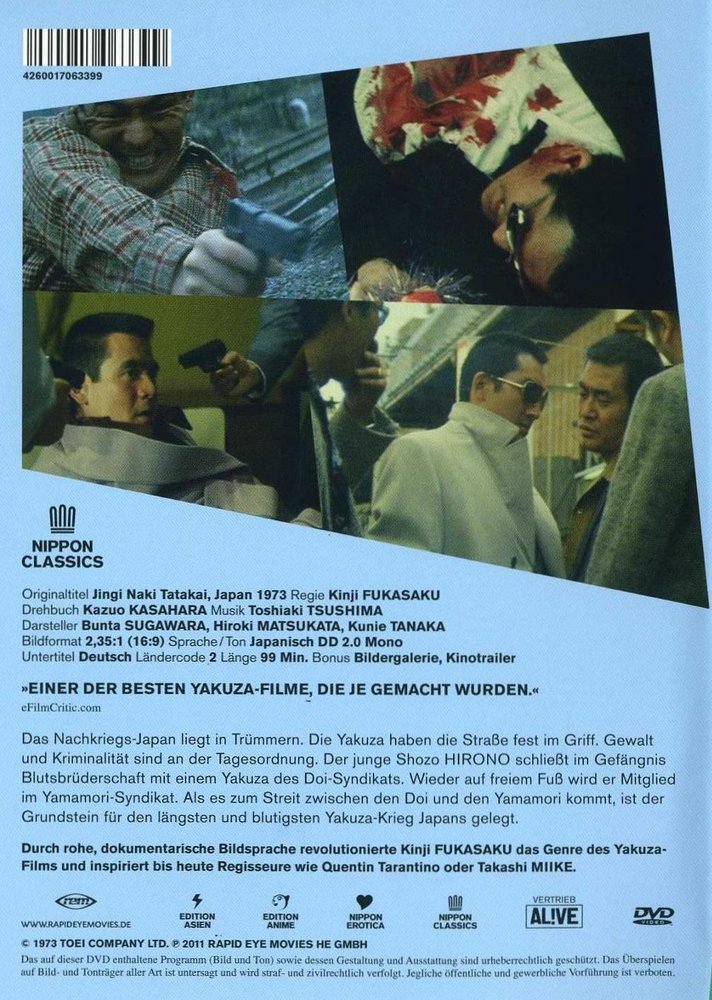Das Nachkriegs-Japan liegt in Trümmern. Gewalt und Kriminalität sind an der Tagesordnung, der Schwarzmarkt blüht. Weder die amerikanischen Besatzer noch die japanische Polizei vermögen für Recht und Ordnung zu sorgen - es sind die Yakuza, die die Straße fest im Griff haben. Um einen Freund zu rächen, ermordet der junge Kriegsheimkehrer Shozo Hirono (Bunta Sugawara) einen Yakuza und kommt ins Gefängnis. Dort schließt er Blutsbrüderschaft mit einem Yakuza des Doi-Syndikats. Wieder auf freiem Fuß wird er Mitglied im Yamamori-Syndikat. Als es zum Streit zwischen den Doi und den Yamamori kommt, ist der Grundstein für den längsten und blutigsten Yakuza-Krieg Japans gelegt...
Kinji Fukasaku ('Battle Royale') schrieb in den 70er Jahren mit kunstvollen Oden an die Gewalt Filmgeschichte. 'Battles Without Honor and Humanity' revolutionierte durch rohe, dokumentarische Bildsprache das Genre des Yakuza-Films. Bis heute inspirieren Fukasakus Werke Regisseure wie Quentin Tarantino, John Woo oder Takashi Miike.
Weiterlesen »
Post-war Japan lies in ruins. Violence and crime are the order of the day, the black market is flourishing. Neither the American occupiers nor the Japanese police are able to ensure law and order - it is the yakuza who have a firm grip on the streets. In order to avenge a friend, the young war returnee Shozo Hirono (Bunta Sugawara) murders a yakuza and ends up in prison. There he forms blood brotherhood with a yakuza of the Doi Syndicate. Once released, he became a member of the Yamamori Syndicate. When it comes to a dispute between the Doi and the Yamamori, the foundation is laid for Japan's longest and bloodiest yakuza war...
Kinji Fukasaku ('Battle Royale') wrote film history in the 70s with artful odes to violence. 'Battles Without Honor and Humanity' revolutionized the genre of the yakuza film through raw, documentary imagery. To this day, Fukasaku's works inspire directors such as Quentin Tarantino, John Woo and Takashi Miike.
